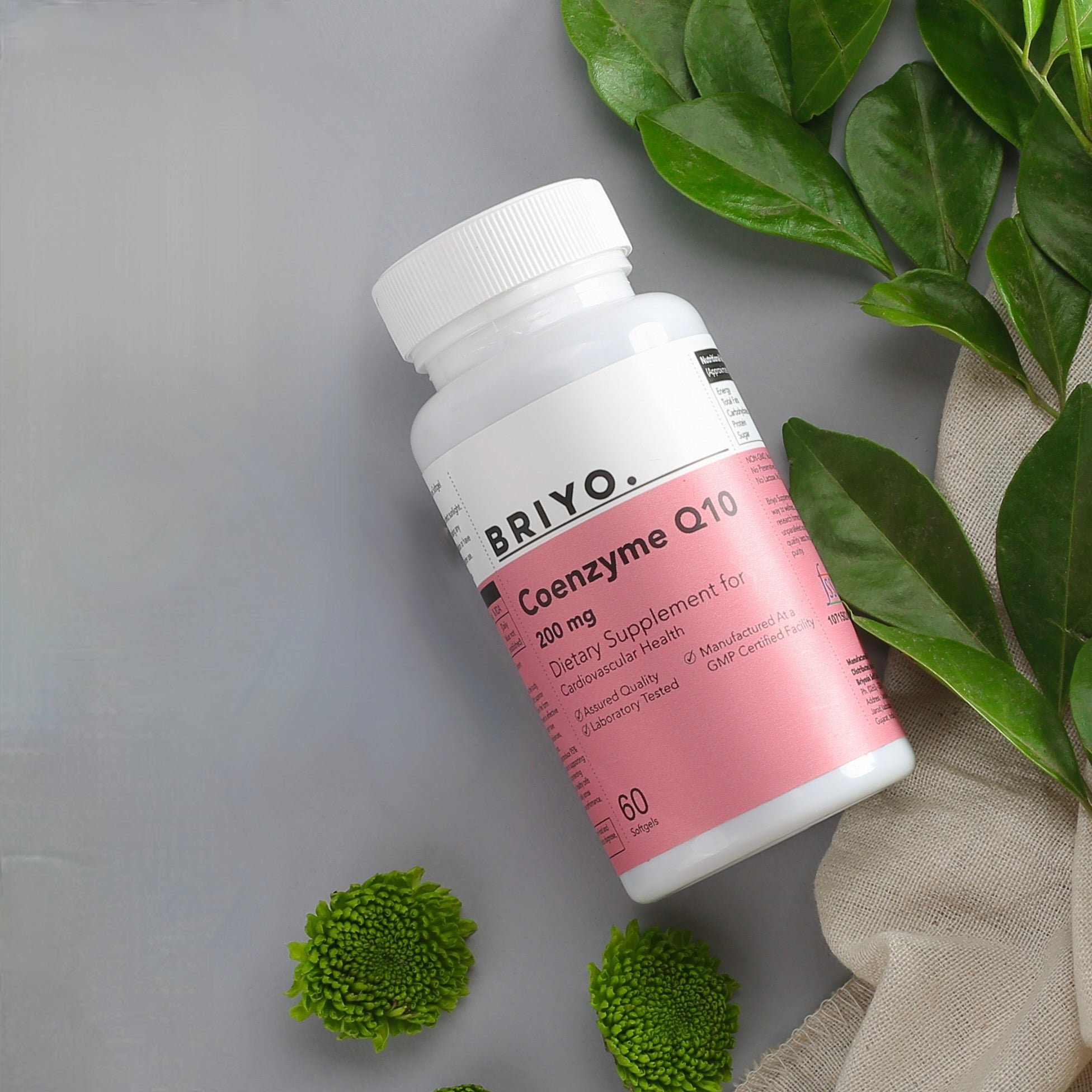A few of your unanswered questions about vitamins and supplements are answered by us. The majority of people take supplements daily or occasionally, yet many are unsure about which ones to take, how much of them to take, or when to take them. To help with such questions answers to some of the most commonly asked questions about vitamins and supplements are mentioned-
1. How to decide which vitamins and supplements are best for your body?
The decision of which supplements you should take depends on your diet. You can understand the nutrient gaps that exist in your diet by talking to your primary health care provider. To fill these nutrient gaps, many people prefer a daily multivitamin. A daily multivitamin is preferred by so many as it is considered a convenient and effective way to obtain daily nutritional support. An appropriate multivitamin formula should match with the specific age-related and gender needs. For example, women over the age of 50 years require 8 mg per day while those under 50 are 18 mg per day. Multivitamins suitable for women over the age of 50 may contain little quantity of iron because 8 mg per day can usually be obtained through the diet. Similarly, a multivitamin for men over the age of 50 may not contain iron and may often include other ingredients that may not be added to a woman’s multivitamin.
While a multivitamin is perfect for filling nutrient gaps, some people need more than just a single multivitamin formula to fulfill. For example, many people are required to take extra calcium and vitamin D. Even though many multivitamins provide both of these nutrients, they do not deliver sufficient quantities as may be required by your body to maintain adequate levels. Some multivitamins may not only contain vitamins and minerals but may also contain other nutrients like coenzyme-Q10 needed for hearth health or omega-3 fatty acids needed for heart, brain, bones, joint, eye, mood & mental state, skin & hair. If your diet lacks omega 3 rich food then you can highly benefit from taking a daily fish oil supplement, similarly, certain statin drugs can lower levels of coenzyme Q10 a nutrient needed for heart function and cellular energy production thus making consumption of a coenzyme Q10 supplement very beneficial. Taking the guidance of your health care professional for deciding on a safe and effective supplement program I also preferred.
What is the correct amount of vitamins and supplements that can be consumed?
It is safe to consume vitamins and supplements in amounts greater than the Recommended Daily Value (DV). The percent daily value (%DV) represents what percent of the recommended intake amount for that nutrient is met per serving. Several studies conducted have shown that taking certain nutrients in amounts greater than 100% DV several health benefits. For example, consumption of a higher level of vitamins and supplements rich in antioxidants and other essential nutrients support the immune system. Before taking vitamins, it is highly essential to know about the suggested use as well as the Upper Limit (UL), which is the highest amount that can be safely consumed.
The precautions and instructions specified by the product label shall be properly reviewed before taking a vitamin or supplement. In case of any questions, the help of your health care practitioner shall be taken.
-
2. Can supplements be taken with other medications?
Your primary health care provider can help you determine which vitamins and supplements can be taken with your respective medications as well as with other supplements, even if you take them infrequently. This is particularly important because some dietary supplements cannot be taken with certain prescribed medications and over-the-counter (OTC) drugs as they interfere with their functioning making them less effective. On the other hand, some medications cause certain nutrients levels to drop and so taking supplements can help support nutrient needs and overall health when taking such drugs. Some statin drugs, for example, have been known to lower blood levels of coenzyme Q10. To that end, individuals taking statin drugs are often advised to supplement with coenzyme Q10. It’s important to let your doctor know the dosage and the frequency of use for all the supplements you are taking. Talk to your doctor or pharmacist about potential nutrient depletions that may occur with your medication(s) so you can be sure to supplement wisely and restore those nutrient levels.
Can vitamins and supplements be taken after their expiration date?
Products are not necessarily harmful to consume after their expiration However, the active ingredients may no longer be up to their labeled potency. Thus it is always suggested to discard an expired product and purchase a new batch. Before purchasing nutritional supplements, the expiration date printed on the label should be checked, as some products might be expiring within a year from the date of purchase.
Can I cut supplement content in half if I can’t swallow them whole at a time?
The majority of the vitamins and supplements may be cut in half, crushed, or chewed if swallowing the whole capsule at a time is a challenge. Softgels that are relatively too large to swallow are usually punctured or cut in half to release the contents into a spoon or food source. The only products of exception that cannot be cut in half for consumption are those that are timed-release or enteric-coated. Such supplements are to be swallowed whole for enjoying maximum product effectiveness.
Where and how should the supplements be stored?
Storage instructions are commonly mentioned on the supplement label. Generally, storing a bottle in a cool, dry place with the lid tightly sealed is advised. Be aware that some formulations may require special conditions and always keep supplements out of reach of children and pets.
-
3. Are you at risk for vitamin D deficiency?
Our skin is responsible for making vitamin D through the UVB rays from the sun. However, products such as sunscreen block nearly 99% of vitamin D production in the skin leading to the deficiency of this key nutrient in our diets. Reduced sun exposure due to several factors is one of the leading causes of an increase in the risk of vitamin D deficiency. The other causes that have to lead to vitamin D deficiency are taking medications which interfere with vitamin D absorption or metabolism, suffering from malabsorption syndrome, reduced vitamin D formation due to old age, having darker skin, or becoming overweight or obese which increases the need of vitamin D by your body.
A daily vitamin D supplement is useful for ensuring that your body’s daily vitamin D requirements are met. With the help of your physician or health care practitioner, the vitamin D level of your body can be tested, determine how much vitamin D is needed by you to avoid vitamin D deficiency.
Vitamin D is needed by our bodies for performing numerous functions, including bone health, immune system function, muscle function, and cell regulation. Vitamin D in its natural form is found in very few foods. It may be found in food such as fatty fish and egg yolks; some cereals and milk. To get the right quantity of vitamin D you need to consume large amounts of these natural and fortified sources to meet your needs. For example, you would need to consume approximately 20 glasses of milk per to achieve 2000 IU of vitamin D, a daily recommended level associated with healthy vitamin D blood levels.
-
4. Why do people lack magnesium?
Magnesium is needed by your body to support nerve, muscle and heart function and is involved in over 300 reactions in the body. Magnesium is needed for supporting metabolism as well as for the production of adenosine triphosphate (ATP) or cellular energy, for the body. Magnesium is also necessary for healthy bones and teeth. The leading cause of magnesium deficiency that leads to low blood concentrations of magnesium, or magnesium depletion in the body is Poor intake of magnesium from daily nutrient intake, old age, as well as certain conditions such as digestive or kidney problems may result in low magnesium in your body.
-
5. What are the benefits of EPA and DHA?
Eicosapentaenoic acid (EPA) and docosahexaenoic acid (DHA) are the primary ingredients of omega-3 fatty acids found in fish oil. They play a key role in supporting overall wellness, including, heart, brain, bones, joint, eye, mood & mental state, skin & hair. When it comes to your health, EPA and DHA are most notably studied and recommended for their role in helping support a healthy heart. Most people don’t consume enough EPA and DHA. People consume a higher amount of omega-6 fatty acids and less of omega-3s which are needed by your body. The recommended ratio of omega-6 to omega-3 fatty acids should be between 1:1 and 4:1, instead of this ratio people consume them in a proportion of 10:1 and 25:1. To get all the benefits of EPA and DHA should be consumed with a complete meal to help support optimal absorption. Daily busy and stressful lifestyle has to lead to poor food choices that have impacted our nutrition intake. This is a growing problem in every country where our bodies are unable to get all the essential nutrition needed by it to function optimally. The best nutritional supplement that is best for your body shall be followed to fill in the gaps created by suboptimal nutrient intake.







